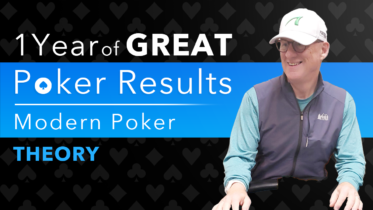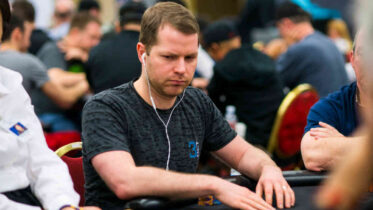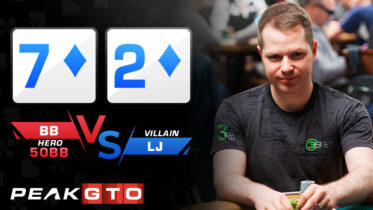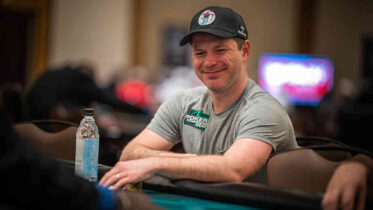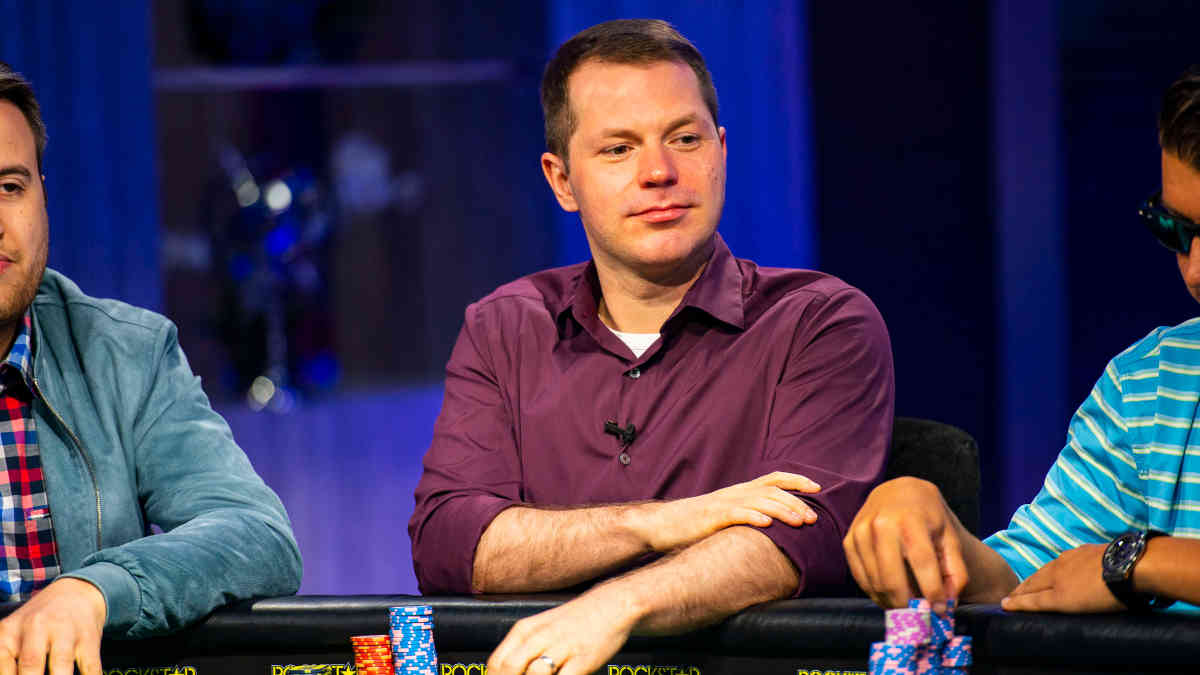In this chapter, I give an outline of the changes I’ve made over the past three years and how they’ve helped me. If you wish, you can start reading at Chapter 1, or download the entire e-book as a PDF.
Modern Poker Theory
We – the great collective “we” – have learned more about poker theory in the last five years than we did in the prior twenty-five years. I wanted the most recent information, so when I searched for training resources and mentors, I asked, “Does this training reflect modern poker theory?” and, “Is this coach conversant with solver results?”
One Foot in the Simulation and One Foot in the Real World
The hardest part of my recent journey has been to reconcile what I learned from the theorists with the realities of playing against humans. As I noted above, all of my poker is played live, and live players are notoriously light-years removed from equilibrium (aka “Game Theory Optimal” or “GTO”). So, plays that are theoretically correct can be much less profitable against carbon-based lifeforms.
I had to figure out how the solver’s behavior differs from what I see in the real world. Andrew Brokos puts it like this in his excellent book Play Optimal Poker:
- Envision the equilibrium
- Make a read
- Identify the exploits
- Determine the degree of deviation
My first goal is to learn the equilibrium (GTO) play. Then figure out how my opponents are deviating from GTO. Once I’ve done that, I then deviate from the GTO play to exploit the specific mistakes my opponents are making.
Theory Versus Real World Examples
Suppose I’m playing $2/$5 no-limit hold’em, and open to $20 in the lojack position (three to the right of the button). Only the big blind calls. We both started with $500. With $42 in the pot, the flop is Q❤️-8❤️-4♣️. The big blind checks – what should I do?
The solver is having me check 53% of my range. In fact, it’s frequently checking powerful hands such as AQ and KQ. Why is that? There are multiple reasons, but one of the key ones is that the solver expects my opponent to check/raise 10% of the time when I bet 1/3 of the pot, including sometimes with hands such as T♠️9♠️, J♣️9♣️, and A❤️T♠️. Check/raises and subsequent bets on the turn can put me in a bad spot, even with a hand as good as KQ.
But my real-life opponents rarely make such plays. As a population, they have two important deviations from the theoretically correct play:
- They don’t check/raise bluff as much as they should, and
- They call far more frequently than they should.
The way I exploit these mistakes: I bet more frequently than the solver would. My IRL opponents don’t put me in tough spots with checks/raises because those check raises are almost always huge hands – I can often just fold to such a raise. Also, they call more than they should, allowing me to bet larger and more frequently than the solver would dare, and yet worse hands still call me.
The solver would certainly beat my IRL opponents, but I’m winning more often by targeting the specific errors they make.
Work in Progress
I want to emphasize that my relationship to GTO and solvers is a work in progress. It’s a constant source of confusion, but also enlightenment. This experience has renewed my love and respect for this great game that we share.
Talking Poker With Other People
It has helped me immensely to share hand histories and discuss strategy with people I respect. There are dozens of forums to suit all needs. The one that I use and highly recommend is the PokerCoaching Discord.
Hearing other people’s thoughts about strategies and hands helps refine and solidify my own. When I post my own thoughts and hands, my play gets rough edges shaved off, and leaks – big and small – plugged.
Here’s what I’ve learned in 30 years of discussing poker on the Internet:
- I don’t just read other people’s hands – I post my own. Whether I won or lost the hand is immaterial – if I wasn’t sure I played it well, it’s good fodder for a hand history post.
- I don’t use a post as a thinly veiled excuse to tell a bad beat story. I know if it was a bad beat, and if it was, I don’t post (or talk about) it.
- I quickly identify the smartest posters and read their posts thoroughly.
Poker Study as Daily Practice
I have my morning coffee while listening to a poker strategy podcast. I pick at least one hand to run through a solver. Like going to the gym or practicing yoga, poker study is integrated into my daily schedule.
Healthy Body, Healthy Poker

Most poker players, even professionals, don’t take good care of themselves. They eat bad food, don’t get enough exercise, and their sleep habits are awful.
This is reciprocality[1] gold for me. I have a healthy diet, get meaningful exercise multiple days each week, and get 7-8 hours of sleep most nights. When I am outplaying the opposition this much in such a crucial area, players with poker skill sets similar to mine have little chance against me.
Mindset Is Everything
Over the last 20 years, I have matured and gained wisdom. My poker game is a huge beneficiary of that. I don’t whine, and I don’t trade in bad beat stories. I have learned to put poker in its proper place in my life. When I go trout fishing, I have a great time, whether I catch fish or not. When I play poker, I have a great time, whether I win money or not. Here’s an example:
I’m playing $5/$10 NLHE, 9-handed. The Lojack opens to $20, I call on the button with J♦-T♦, and the blinds fold. We both started with $1,000. There’s $45 in the pot, and the flop is Q♣️-8♠️-2♦. The Lojack bets $25, and I call. Now there’s $95 in the pot, and the turn is the A♦. This is a glorious card for me, giving me a gutshot to Broadway and a jack-high flush draw. The Lojack bets $50, and I call again with my 15 outs. There’s $195 in the pot, and the river is the 3❤️, leaving me with jack-high. But the Lojack checks.
So I fire a B60 ($120) bet into the pot. My opponent looks sad, and tanks.
I am thinking, “It would be nice if they fold, but I am content. I have made a very good bet (solver results confirm this), and played this hand perfectly. I am having fun playing this game and doing well. Life is good.”
I found this topic sufficiently compelling that I wrote an entire article about life/poker balance. I also commend to you anything Tommy Angelo has written on this topic.
[1] “Reciprocality” is a term coined by legendary poker author Tommy Angelo. It’s the idea that theoretical money changes hands when two different players take different actions in the same spot.
